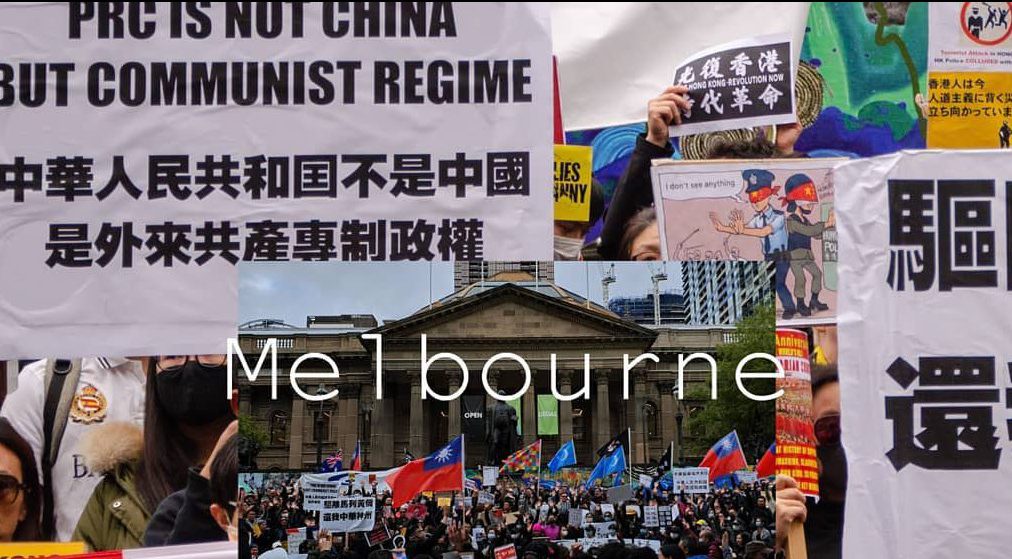Safety fears often force them to communicate and organise in secret – but expat Hongkongers in Australia are standing in solidarity with student protesters back home.
Months after the controversial extradition bill was introduced in Hong Kong, the clashes between authorities and protesters have sparked a worldwide response – including from Hongkongers living and studying here.
Founded by a group of students throughout different universities, the Hong Kong Public Affairs Society has been at the forefront of the protests in Melbourne.
The group runs an Instagram page managed by a fixed board of administrators who use the platform to spread socio-political awareness about Hong Kong and show solidarity with pro-democracy supporters.
The administrators – who go by pseudonyms because of privacy and security concerns – say it is challenging to manage the organisation and stay up to date with their studies.
One administrator, identified as “L”, said finding a consensus among the group could be difficult with a packed schedule and a stressful environment.
“L” works alongside seven other administrators who met each other through school activities and who share a similar mindset.
Despite the withdrawal in September of the extradition bill – which would have allowed for extradition to China from Hong Kong and trial under the Chinese system – activists suggest the fight is not yet over, as shown in this video.
And despite the group trying to a maintain a peaceful approach towards protests, they regularly face opposition.
Confronted by Chinese mainlanders on campus, they have been subject to offensive language – with the words coward and betrayer hurled at them, along with the insult “neet” – “not in education, employment or training” and used as a term for a social underclass lacking drive.
“We feel disgusted to interact with them,” said “L”, talking about an incident where one of their members was subjected to cyber-bullying.
All the administrators have had friends or family members arrested in Hong Kong and express their concern at having to go back home in November during the break to join “the war” again.
The group is currently not open to new members and the only way to be a part of the movement is to follow them on social media to receive details about future rallies.
The group co-ordinates its rallies with the ones happening in Hong Kong on Sundays. Followers can also access information about protests on Facebook and Instagram.
The organisers work in collaboration with the Australia-Hong Kong Link through phone calls but will sometimes have physical meetings to prepare for rallies.

In between protests, the group uses Instagram to interact with followers and encourages them to take part in interviews to raise awareness.
Australian expats living in Hong Kong have also been affected by the situation.
One expat, identified as “JH”, says that as a foreigner one challenge he faces is the inability to read Chinese, relying on his colleagues to get information to stay safe.
In a city that depends heavily on public transport, he said it was hard to get around when services were suspended and networks shut down.
He said Hong Kong was still a peaceful city most of the time, but it was better to stay away from targeted areas as protests become spontaneous.
“A month ago I would have assured people that Hong Kong is still safe, but now I would advise caution as violence has risen,” he says.
But according to him, the protesters are not radical criminals – just ordinary citizens fighting for their future.


